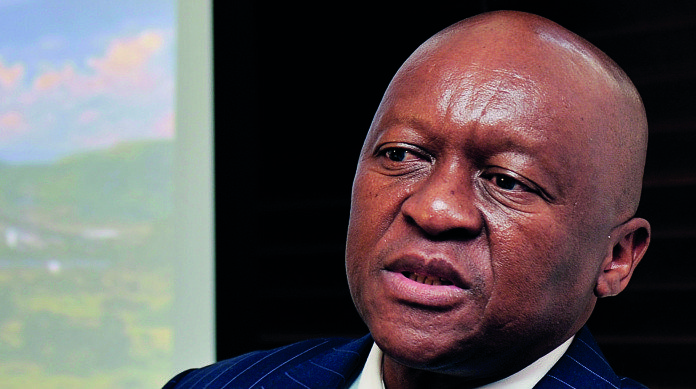
ROYAL Bafokeng Platinum (RBPlat) CEO, Steve Phiri said uncertainty regarding the direction of Impala Platinum’s (Implats’) takeover offer for his company was one of the reasons it had under-performed in the first six months of its 2022 financial year.
“It brings instability and consternation among workers,” said Phiri in an interview today following the group’s interim results ended June. “Senior management keeps saying ‘how far are you, when is this concluding?’. Human beings want certainty in order to move forward in their lives. It’s a concern for us,” he said.
RBPlat reported a 54.5% decline in headline earnings to R2.2bn for the six months while share earnings fell to 767.3 cents per share. A feature of the results was inflation, especially at Styldrift which performed below targeted production. The company conceded the mine was taking longer to “mature” than planned.
As a result, RBPlat paid an interim dividend of 245 cents a share – a year-on-year reduction of just over 54% despite cash at R4.9bn. The reason for keeping cash on hand is so that a shareholder such as Implats would not have to pitch in additional funds in the event it was required for working capital purposes, said Phiri.
Implats bid R90 per share in cash for RBPlat as well as 0.3 Implats share per RBPlat share. Roughly, 38% of RBPlat is owned by Implats but another 34.5% of the company is owned by Northam Platinum which also has an option over further shares.
Were Northam to exercise this option it would trigger a mandatory offer for RBPlat shares and rival Implats’ takeover offer. This deal tension is thought to be one of the reasons behind the Public Investment Corporation’s (PIC’s) decision to not yet vend its 9.3% in RBPlat into Implats’ takeover offer.
Phiri said it was “discouraging” the PIC had not yet voted its shares. “The PIC is a determining factor to any of the two companies,” said Phiri. “It is kind of discouraging it takes so much time.”
Phiri also expressed doubts over the effectiveness of a joint venture ownership of RBPlat shares, adding that such arrangements over ended in argument.
“More often than not … they end up fighting one another, not making decisions that are important for the business. It’s always better with one owner as decisions are taken quickly and effectively,” he said.
“It depends on the personalities. If you have one objective to bring this to fruition and a single purpose of making profits, and you don’t keep bickering over egos, then it will work,” he added.











